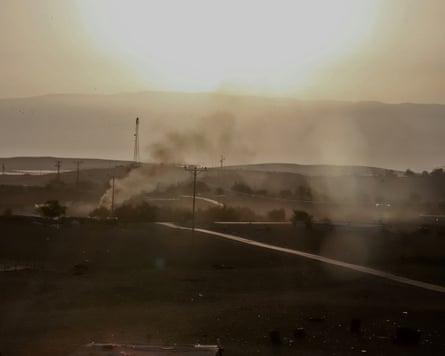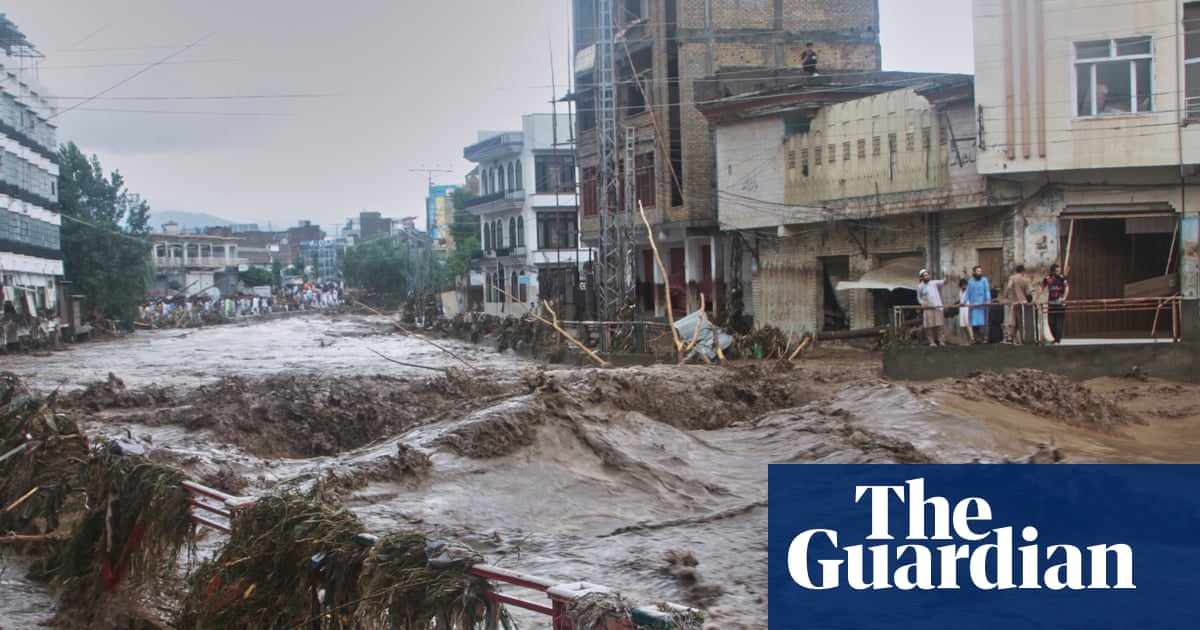PROTECT YOUR DNA WITH QUANTUM TECHNOLOGY
Orgo-Life the new way to the future Advertising by AdpathwayJordan and Israel have suffered through their hottest nights on record, with nocturnal temperatures in the Levant well above levels that scientists consider “hellish”.
Temperatures on Monday night did not go below 35C (95F) in Ghor es-Safi and Aqaba in Jordan, while in the capital, Amman, they stayed above 31.8C.
In Israel, meteorologists reported a record-breaking nighttime minimum on Tuesday night of 36C in Sedom.
“It’s like you’re walking in a sauna,” said Fayha al-Shibli, a climate scientist at the University of Jordan, who lives in Amman.
Doctors fret about hot nights because they compound the damage done by heatwaves, preventing worn-out bodies from resting after the stress of a scorching day and contributing to a vast but overlooked death toll.
In many European countries, tropical nights refer to temperature minimums above 20C, while in Spain, which is more familiar with extreme heat, meteorologists describe nights above 25C as equatorial or torrid.
In recent years, they have begun to informally refer to those above 30C as “hellish”. Overnight temperatures in parts of Jordan and Israel this week remained a full 5C hotter.

Shibli said 2025 had already broken records for nighttime heat intensity in many parts of the country, though not for length or the number of events.
The climate scientist added that she and her children were suffering, but that she “thanked God” for technology such as air conditioning, which she has in her home, office and car.
“The people that can’t handle it are the people without air conditioning, and those who work on the street, like cleaners and builders,” she said.
Daytime temperatures also reached deadly peaks, with highs of close to 50C in Israel and the Palestinian territories. The Israel Meteorological Service said the highest temperature recorded on Wednesday was 49.7C in Gilgal kibbutz, a settlement in the occupied West Bank, setting a historical record in the Jordan Valley.
Aqaba, a port on the Red Sea, broke Jordan’s national heat record with a daytime maximum of 49.6C.
Temperatures in Gaza were cooler but still soared above 40C. Unrwa, the UN agency for Palestinians, said on Thursday the heat was “making an already desperate situation far worse” by increasing dehydration. It added that limited electricity and fuel – amid bombardments and forced displacement – meant there was no relief from the heat.
after newsletter promotion
Health ministries across the Middle East issued warnings to stay in the shade and drink water.
“Extreme temperatures – well above 40C during the day and above 30C by night – aren’t unknown in the region, but this is certainly unusual,” said Nick Lee, an assistant forecast manager at MetDesk.
He added that some of the locations experiencing extreme heat were at low altitudes – such as Ghor es-Safi on the shores of the Dead Sea, which is 350m below mean sea level – and that this contributed to the high values recorded.
“The same way that temperature typically decreases as you go higher, when you get to these extreme low altitudes you can see much higher temperatures than at sea level,” he said.
Heatwaves have grown hotter, longer and more common as fossil fuel pollution has trapped sunlight and baked the planet.
Shibli said heatwaves can be more dangerous if they are much hotter than what people have recently experienced.
“[People] can adapt to gradual changes, but can be caught off-guard by a sudden jump.”


 6 hours ago
4
6 hours ago
4





















 English (US) ·
English (US) ·  French (CA) ·
French (CA) ·